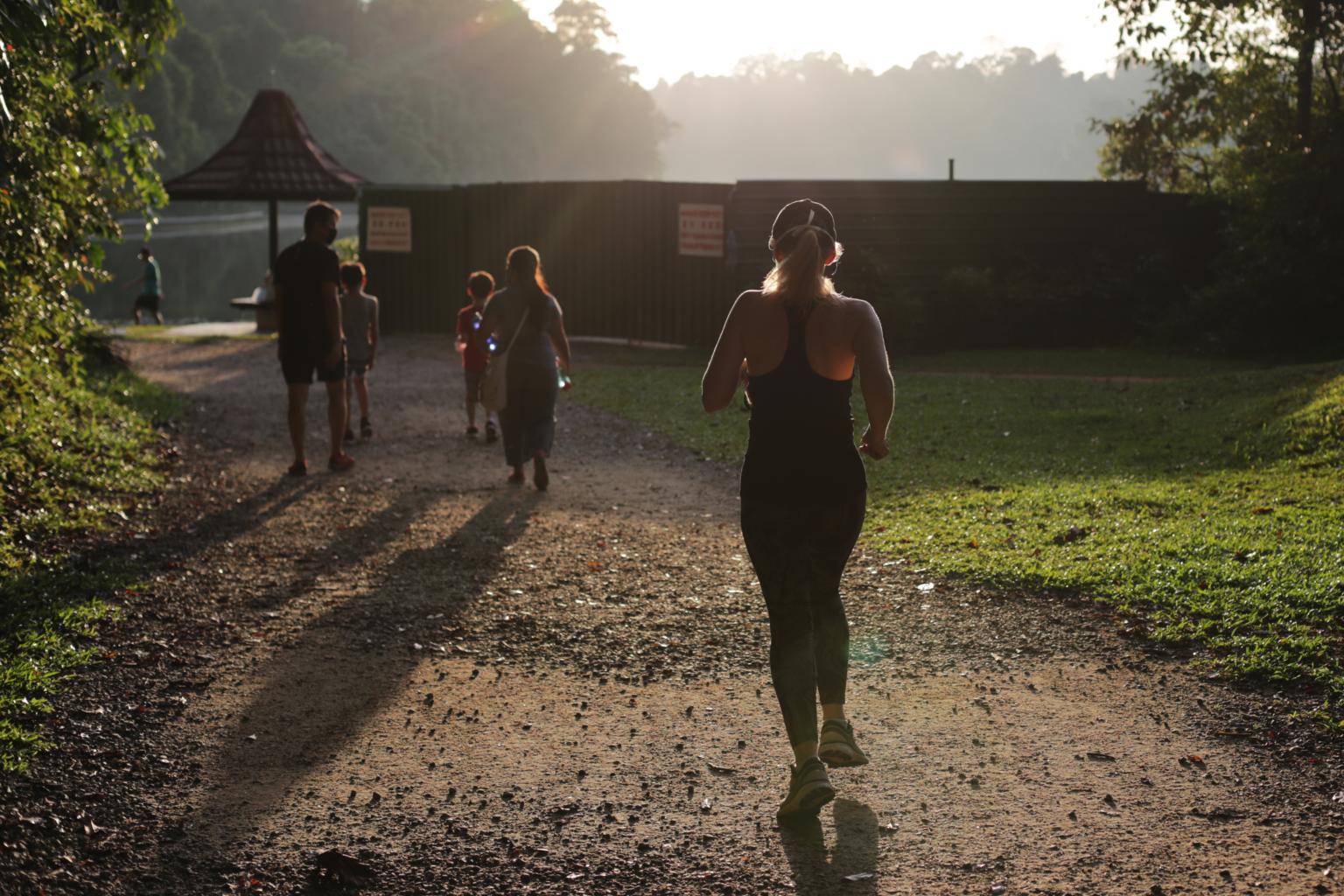ST Virtual Run: Healthy eating for runners - eight food myths debunked
Sign up now: Get the biggest sports news in your inbox

If you are training for longer than one to two hours a day, you will need more carbohydrates on your plate.
PHOTO: ST FILE
SINGAPORE - Food is a runner's fuel, but with a plethora of information available, it may be hard to separate fact from fiction.
Here, Dr Richard Swinbourne, team lead of nutrition at the Singapore Sport Institute, debunks some food myths for athletes:
Myth 1: I have to eat carbs to do a short run
Your body naturally stores carbohydrates in your muscles and liver as an energy source to fuel short- and medium-distance runs. As such, you generally only need water to manage a 30- to 45-minute run.
In fact, short runs can be completed in a carbohydrate-fasted state. But if you are doing high-intensity intervals or sprint workouts, a little bit of an electrolyte drink will help.
Myth 2: Eating before bed is not healthy
Running can increase recovery, repair and metabolic demands. Since your body recovers mostly during sleep, having a protein-rich food before sleep such as dairy protein can increase muscle recovery overnight.
So if you are hungry before bed, listen to your body, have a protein snack, and sleep well.
Myth 3: Eating fat makes me fat
Low-fat eating is a thing of the past. A runner's body needs healthy fat for energy, repair, hormonal and nervous system function, as well as a healthy cardiovascular system. I would recommend sticking to plant fats from nuts, seeds, avocado, olive oil as well as full-fat dairy and fish.
Myth 4: I can eat whatever I want since I am running
Unfortunately, you cannot outrun a bad diet. Eat healthy most of the time, train consistently, drink water, sleep eight hours a night, and you will find a better balanced body.
Myth 5: Energy drinks and gels are good for every run
Energy drinks and gels supply sugar to the body and are needed only for runs over an hour in duration. Runners should test these energy drinks and gels before race day, and consume water too.
Myth 6: I must carbo-load before a big run
A lot of runners do not like to do this as it makes them feel full, bloated and uncomfortable. Instead, keep your training plate balanced with a third to half a plate of fruit and vegetables per meal. Runners should also consider tapering their training volume before a race as this will help 'fill' your fuel tank and will usually suffice.
If you are training for longer than one to two hours a day, you will need more carbohydrates on your plate, and need to eat more regularly to fuel this training. Wholesome carbohydrates like rice, pasta, noodles, wholegrain bread, fruit and vegetables are best.
Myth 7: Recovery is for professionals
All runners should actually pay attention to their recovery to avoid injury, illness, and enjoy their sport fully. This includes hydrating well, consuming a quality meal within an hour after training, sleeping enough, stretching and massage, as well as mindfulness, which are all important to every runner, especially weekend warriors and older runners.
Myth 8: I am older, I do not need to eat as much
Older runners need more protein than younger runners. This is because the muscle becomes desensitised to protein as we grow older. As such, older runners should make protein foods a priority at meal times and consume protein-rich foods or drinks between meals.



